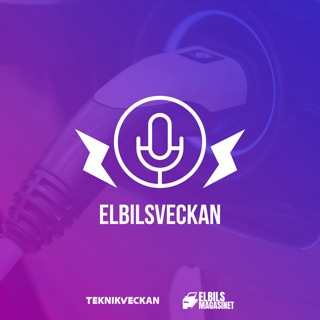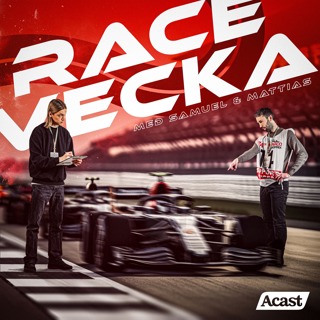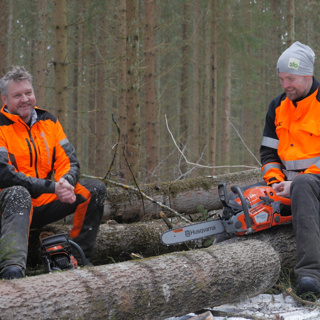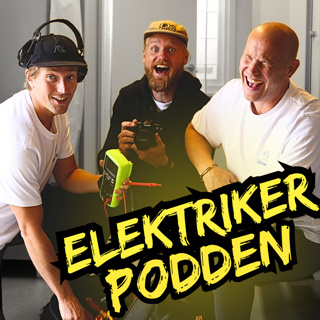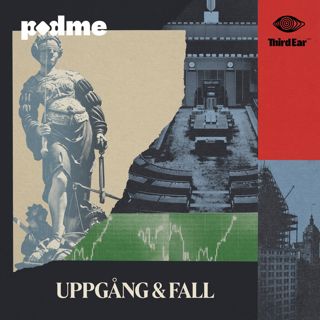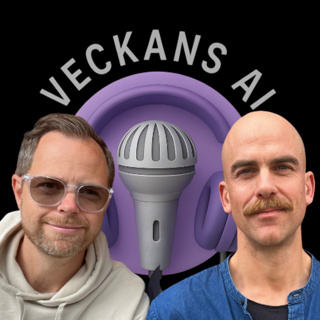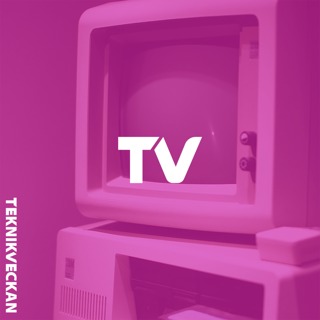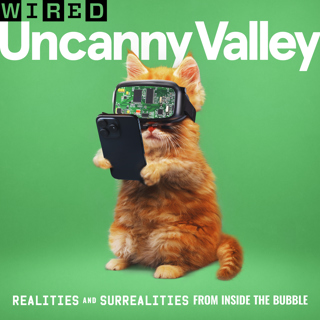
Farm-to-Table Internet
Cloud computing has streamlined our hyper-mobile digital lives. We upload files, images, and globs of data to the cloud. Once all of our stuff is stored there, we can access it from anywhere and edit things collaboratively with our friends and coworkers. It’s convenient and appealing—but only if you don’t mind that all your personal data is stored on servers run by giant companies like Google and Amazon. The local-first computing movement is advocating for a different kind of communal framework, one that’s more private, more secure, and powered by peer-to-peer software that runs just on the machines where the files are being shared. No giant server farms in faraway lands, no faceless corporations using your data to generate ad revenue. Just the good old internet, by the people and for the people.This week on Gadget Lab, WIRED staff writer Greg Barber joins us to talk all about the local-first computing movement and how its adherents hope to upend our reliance on cloud services using peer-to-peer communication.Show Notes:Read Greg’s story about local-first computing.Recommendations:Greg recommends the Ragnar Kjartansson: The Visitors installation at the San Francisco Museum of Modern Art. Lauren recommends the Barbie movie if you somehow haven’t seen it already. Mike recommends the latest episode of The War on Cars podcast with Bob Sorokanich.Greg Barber can be found on Twitter @gregoryjbarber. Lauren Goode is @LaurenGoode. Michael Calore is @snackfight. Bling the main hotline at @GadgetLab. The show is produced by Boone Ashworth (@booneashworth). Our theme music is by Solar Keys. Learn about your ad choices: dovetail.prx.org/ad-choices
3 Aug 202332min

The Future of Hollywood
Back in May, the Writers Guild of America went on strike—partly over disputes about compensation, and partly over fears that studios could use generative artificial intelligence tools to replace human writers and creators. This month, when the actor’s union SAG-AFTRA announced its own strike, things really started to heat up as some of the biggest and most recognizable movie stars joined the picket lines. Production in Hollywood has now mostly ground to a halt, negotiations with studios have stalled, and this stalemate looks as though it will persist for some time.What do these strikes mean for the movies, shows, podcasts, and video games we consume? Will the celebrity podcasts and chat shows also go dark? Are our streaming options now going to be limited to reruns and reality shows? Senior writer Kate Knibbs joins us from WIRED’s Culture desk to discuss the shifts that technology, economics, and income disparity have wrought in Hollywood.Show Notes:Read our coverage of the WGA strike, the actors’ strike. Learn how AI is being used in Hollywood and in video games. We also have a report from a Hollywood-less Comic-Con. Read WIRED’s entire series on the future of entertainment.Recommendations:Kate recommends two music artists, Nation of Language and Yaya Bey. Lauren recommends the episode of WTF with Marc Maron featuring Cillian Murphy. Mike recommends the film How to Blow Up a Pipeline.Kate Knibbs can be found on Twitter @Knibbs. Lauren Goode is @LaurenGoode. Michael Calore is @snackfight. Bling the main hotline at @GadgetLab. The show is produced by Boone Ashworth (@booneashworth). Our theme music is by Solar Keys. Learn about your ad choices: dovetail.prx.org/ad-choices
27 Juli 202336min

Elon Musk’s Grand xAI Plans
Elon Musk is back in the news again. (Really, does he ever leave the news?) Last week, Musk announced a new artificial intelligence venture called xAI. The timing of the launch is odd considering Musk still runs Tesla, SpaceX, Neuralink, Boring Company, and Twitter. Twitter in particular is causing him headaches, with both its sagging business and increased competition from rivals like Meta’s Threads. All of these developments are happening in the shadow of what feels like a lazy subplot on a bad sitcom—a proposed mixed martial arts cage match between Musk and his rival, Meta CEO Mark Zuckerberg.This week, we talk with WIRED editor at large Steven Levy about the launch of xAI and its stated goal of “understanding the true nature of the universe.” We also discuss the places generative artificial intelligence has yet to venture, and the ways in which xAI could make an impact in the field of deep learning. And of course, we talk about that cage match. Yech.Show Notes:Read Steven’s Plaintext newsletter, in which he urges Mark Zuckerberg not to take the bait. Will Knight outlines xAI’s biggest challenges. Amanda Hoover writes about Threads’ threat to Twitter’s domain. Paresh Dave gives an update on AI regulation in Europe and the US. Read all of our generative AI coverage.Recommendations:Steven recommends Oppenheimer. So does Lauren. (We discuss it without spoiling it.) Mike recommends pretzel buns, because it’s not summer without them.Steven Levy can be found on Twitter @StevenLevy. Lauren Goode is @LaurenGoode. Michael Calore is @snackfight. Bling the main hotline at @GadgetLab. The show is produced by Boone Ashworth (@booneashworth). Our theme music is by Solar Keys. Learn about your ad choices: dovetail.prx.org/ad-choices
20 Juli 202335min

Stop Trying to Make New Twitter Happen
Hey look, there's a new Twitter alternative. The text-based Instagram offshoot Threads launched a week ago, and in the days since, the platform racked up over a hundred million users. It's a huge showing for parent company Meta that has Mark Zuckerberg and other execs celebrating. Meanwhile, current Twitter owner Elon Musk is fuming as Threads threatens to unravel his platform’s microblogging dominance. But despite its initial success, it's not yet clear whether Threads will emerge as the top social space. These early days of Threads may feel slightly less toxic than Twitter, but it's already being overtaken by cringey influencers and pseudo-sassy brand accounts. It's also just one more thing to sign up for, and could stretch just how much tolerance people have for all these new microblogging platforms.This week on Gadget Lab, WIRED senior Kate Knibbs joins us to unspool the question of whether Meta's new social service is too much, too little, or just right.Show Notes:Read Kate’s story about how it’s time to stop making Twitter competitors. Read all about how Threads may be the thing that kills Twitter, and how to run Threads on your desktop. Or, you know, don’t sign up for Threads at all until it becomes clear how much of your data it is harvesting.Recommendations:Kate recommends the book Natural Causes by Dan Hurley. Mike recommends Life Examined from KCRW. Lauren recommends season two of The Bear on Hulu.Kate Knibbs can be found on Twitter @Knibbs. Lauren Goode is @LaurenGoode. Michael Calore is @snackfight. Bling the main hotline at @GadgetLab. The show is produced by Boone Ashworth (@booneashworth). Our theme music is by Solar Keys. Learn about your ad choices: dovetail.prx.org/ad-choices
13 Juli 202338min

Have a Nice Future: Don't Worry, It Gets Worse
We're off this week, so instead of our usual show, we're sharing an episode of WIRED's other podcast, Have a Nice Future. It's hosted by Gadget Lab cohost Lauren Goode and WIRED editor in chief Gideon Litchfield. The show features interviews with guests who have big, audacious ideas about the future. Lauren and Gideon dig into whether this is a future we want to live in, and what we can do about it now.On this episode, Gideon and Lauren are joined by someone whose full-time job was to predict the future. Noah Raford spent nearly 15 years working as the UAE’s chief futurist, where he advised the government on how to prepare for all sorts of futuristic challenges, from pandemics to global warming. His advice? Get comfortable with discomfort.This episode originally aired April 26, 2023. Listen to every episode of Have a Nice Future wherever you get your podcasts. Learn about your ad choices: dovetail.prx.org/ad-choices
6 Juli 202333min

Our Clothes Are Making Us Sick
Have you ever put on a new shirt and then discovered that it makes you feel itchy? Or have you ever taken off a new pair of pants at the end of the day to find that the fabric has given you a skin rash? This is a problem that’s increasingly common as more and more chemicals are being added to our clothing when they’re dyed different colors or treated with additives that make them stain-, wrinkle-, or odor-resistant. Some of these chemicals are irritants that can cause breathing problems or skin issues. Some others are toxic enough to trigger life-altering autoimmune diseases. Since the fashion industry operates within loose regulations, the problem of toxic apparel isn’t going away anytime soon.This week on Gadget Lab, we're joined by journalist and author Alden Wicker. Her new book is called To Dye For: How Toxic Fashion is Making Us Sick—And How We Can Fight Back. We discuss the wide range of chemicals, dyes, and treatments that get put into our clothes, and we offer tips on how to avoid the worst offenders while shopping for a new wardrobe.Show Notes:Alden’s book is To Dye For. It’s out this week from G.P. Putnam’s Sons; buy it wherever books are sold. Also read Alden’s reporting on the fashion industry for WIRED.Recommendations:Alden recommends Vermont. Lauren recommends tzatziki sauce. Mike recommends The Creative Act: A Way of Being by Rick Rubin.Alden Wicker can be found on Twitter @AldenWicker. Lauren Goode is @LaurenGoode. Michael Calore is @snackfight. Bling the main hotline at @GadgetLab. The show is produced by Boone Ashworth (@booneashworth). Our theme music is by Solar Keys. Learn about your ad choices: dovetail.prx.org/ad-choices
29 Juni 202332min

Shop Talk
Nearly every one of us in the US and Canada has bought something from either Walmart or Amazon. Not only are these two retailers ubiquitous, but they have forever altered the way we buy things through their experiments with things like free shipping, competitive pricing, speedy delivery, membership services, and innovative brick-and-mortar experiences.Amazon and Walmart are obviously different in many ways, but the two companies are also surprisingly similar. This becomes particularly evident when you chart the history of their rivalry, as they race to compete for online shopping gains, or when they battle it out to acquire the same companies. Journalist and author Jason Del Ray writes about the dueling giants in his new book, Winner Sells All: Amazon, Walmart, and the Battle for Our Wallets, which traces the moves both companies have made in their decades-long slugfest.This week, we talk to Jason Del Rey about Amazon and Walmart’s technological advances, their strategic acquisitions, and how the pandemic forced them both to change course.Show Notes:Jason’s book, Winner Sells All, is out now from HarperCollins. Read all of our Amazon and Walmart coverage.Recommendations:Jason recommends season two of The Bear on Hulu. Mike recommends “Life After Roe,” WIRED’s series of stories about the current state of abortion rights. Lauren recommends buying gifts for people year-round, storing them in your home, then delivering them at the one time of year when you see them. Jason Del Rey can be found on Twitter @DelRey. Lauren Goode is @LaurenGoode. Michael Calore is @snackfight. Bling the main hotline at @GadgetLab. The show is produced by Boone Ashworth (@booneashworth). Our theme music is by Solar Keys. Learn about your ad choices: dovetail.prx.org/ad-choices
22 Juni 202332min

What the Truck, Elon?
Hey, remember the Cybertruck? Tesla CEO Elon Musk unveiled the company’s futuristic electric vehicle way back in 2019. At the launch event, Tesla tried to show off the Cybertruck's "unbreakable windows" by hurling a metal ball at them. It promptly shattered the glass. Twice. It was an inelegant debut, but Tesla still seemed eager to develop the EV.Turns out, the Cybertruck had a few other design flaws as well. Leaked Tesla documents from January of 2022 have revealed an array of problems with the handling, braking, suspension, and chassis of the Cybertruck’s prototype. Most of the Cybertruck’s physical problems appear fixable, but auto industry experts are shocked that Tesla was still encountering so many issues at such a late point in the vehicle’s development.This week on Gadget Lab, we're joined by WIRED staff writer Aarian Marshall and WIRED's innovations editor Jeremy White for a conversation about where the Cybertruck’s development went wrong and how the EV’s difficult birth affects Tesla’s larger EV vision.Show Notes:Read Jeremy and Aarian’s story about the leaked Tesla documents that revealed the Cybertruck’s design flaws. Check out all WIRED’s coverage of Tesla and electric vehicles.Recommendations:Aarian recommends Shokz Open Run headphones for running. Jeremy recommends that you get some proper tea, either loose leaf or PG Tips in paper bags. (And please only add the milk after you’ve poured in the hot water.) Mike recommends the podcast This Little Light, hosted by Flea of the Red Hot Chili Peppers. Lauren recommends Jennifer Egan’s book The Candy House and the documentary series Smartless On the Road on Max.Aarian Marshall can be found on Twitter @AarianMarshall. Jeremy White is @jeremywired. Lauren Goode is @LaurenGoode. Michael Calore is @snackfight. Bling the main hotline at @GadgetLab. The show is produced by Boone Ashworth (@booneashworth). Our theme music is by Solar Keys. Learn about your ad choices: dovetail.prx.org/ad-choices
15 Juni 202336min



